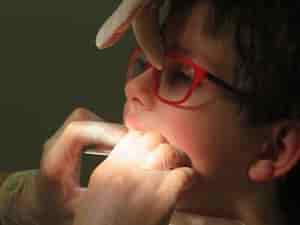What Do You Want To Do With Your Life?
Teens Face Life Decisions Earlier Than Ever
By Suki Wessling

This article is first in a three-part series on the college application experience for teens. This month: college applications don’t just come out of nowhere. How can teens start early determining what they might want to do in college and beyond?
Being a teen is never easy, but perhaps the most exasperating thing teens experience is the assumption that they should know what they want to do for the rest of their lives.
Adults who work with teens say that now, more than ever, the pressure is on.
“Part of me feels sad to even ponder this question because embedded within it is the assumption that they need to know that before going to college,” explains Debra Sloss, Li- censed Marriage and Family Therapist and co-host of the radio program “State of Mind: Being Human and Living Well” on KSQD. “That was once a question to be explored in college, but many of the demands of life have been moving earlier into kids’ lives.”
To be sure, in the past students applied to a college and then spent one to two years exploring before declaring a major. Although some universities still allow and even encourage this approach, many require declaration on the application or soon after, especially for competitive degree programs.
What’s a modern teen to do?
First of all, try to avoid getting stressed out. Kevin Hislop, an education consultant in Scotts Valley, points out that the stress students undergo trying to mold themselves into the perfect application for competitive colleges doesn’t achieve the objective.
“On a humanistic level, this insane competition frequently leads students to engage in unhealthy behaviors that leave them sick, stressed out, and bereft of joy and curiosity, which, ironically, is exactly what the top institutions do not want.”
Keep an open mind and start exploring
Adults who work with teens often emphasize that it helps when students open up their options by exploring early.
“My daughter got interested in the FBI and criminal justice at a big criminal justice fair in fifth grade,” says Pat Moore, an education and career counselor in Aptos. “She ended up working at the FBI, and recently retired.”
Similarly Debra Sloss’s sons explored interests through programs aimed at kids.
“Two of my sons who were good at math thought they might be interested in engineering,” she explains. “Both went to engineering camps. One came back saying aerospace engineering was definitely for him the other learned what he didn’t want to do and later found himself headed toward architectural engineering.”
“There is no set checklist of what students need to do, but they should explore their interests, challenge themselves, and be active participants in their lives,” advises Laurie Kiguchi, a college and career advisor in Santa Cruz. “This could be through traditional organized activities (sports, clubs, volunteer activities, work) or individual, informal activities (skateboarding, reading, creative pursuits, taking care of a family member or neighbor).”
Find out what the “real world” has to offer
Once they hit the teen years, it’s helpful to branch out into ‘real world’ activities that will give them experience.
“Think hard about, uncover, and name specifically the two or three things you most enjoy doing,” Hislop recommends. “Then, find outside organizations that engage in similar activities and make yourself available to them, being willing to start at the absolute ground floor.”
Sloss says that even if you can’t find a job in a particularly interesting field, paid work can also teach you a lot about what you might want in a future career.
“Working jobs is a great way to learn about yourself and what types of environments you like, or don’t like, too,” Sloss explains. “The ‘flops’ are just as valuable as the ‘successes’ because you can learn about yourself.”
Hislop cautions against feeling like you have to do too many activities— just to prove to colleges that you are ‘well-rounded.’
“Of course schools appreciate ap- plicants who are engaged in their local communities, but, more so, they want to see demonstrable evidence of an applicant’s passion—whether it be nursing, robotics, basketball, multi-player video gaming, social dance, or assisting kids who have cancer.”
They did it and you can, too
Professionals who work with teens overflow with examples of how young people have found their way—not always by taking the most obvious path.
“Five years ago, I worked with a young woman who began volunteering as a first-year student in high school at Santa Cruz’s Firelight Foundation, which helps support sustain- able, community-driven initiatives in Africa,” Hislop recounts. “Over four years, this student rose to a position of significant prominence within Firelight, and her passion shined through her application and eventual matriculation to UC Berkeley.”
Jill Schontag, a college and career counselor in Santa Cruz, remembers a young adult in crisis whom she counseled at UCSC.
“Their preferences clearly showed that they were more creative and more hands-on than what they were studying,” she remembers. She helped the student reevaluate their goals and interests. “They ended going to the Cabrillo Culinary Insti- tute [and getting] a job at Google as culinary staff.”
This story, Schontag points out, is not about failure or giving up. “They were struggling, they knew they didn’t want to be doing what they were doing, and once they changed careers they thrived and got a good job out of it.”
Find your preferences
People often tell teens that they have to find their ‘passion,’ and many teens do have a passion. They are the lucky ones. No matter what the passion, there is a career path, no matter how unusual, that relates to their passion. Two scientists won a Nobel Prize for work that started as a childhood passion, playing with lifting pencil graphite off paper with cellophane tape. Parents may worry that their child’s Dungeons & Dragons obsession won’t lead to a career, but pretty much any passion teaches students skills that they can transfer to their studies and a career.
The tougher problem comes when teens feel that they don’t have a particular passion. Perhaps nothing has yet excited them, or perhaps they feel that there are too many options and they can’t choose. Perhaps they find that a focus on school and spending free time with friends and family is enough for them.
For these teens, a rewording may be in order.
“I think the passion word gets overused,” Schontag explains. “It’s really about preference. Preferences are innate ways of being in the world that are comfortable for us and work for us. When you cross your arms, you always cross them the same way. You never decided left over right, it’s just innate.”
Similarly, Schontag says, teens have certain things that they gravitate towards, such as working with people or working independently; being outside and active or inside and focused; even working on concrete tasks versus exploring the edges of human thought in philosophy or physics.
Continue to grow and explore
In any case, the most important thing to remember is that human lives are fluid and don’t always move in one direction. The teen years are exciting ones, when we get to grow and explore. But that growth and exploration doesn’t end the day you press ‘submit’ on the Common App.
“Focus on exploring your interests and the world, trying on new ideas and activities, learning about yourself,” advises Laurie Kiguchi. “Realize that college is still a place to explore and give yourself permission to do just that.”
Next in the series: How to identify possible careers and prepare for the college application process.
Suki Wessling is a local writer and teacher and the mother of two teens. Read more about her writing, teaching, and music at www.SukiWessling.com.
Resources:
Pat Moore, Options Educational & Career Counseling, Aptos Kevin R. Hislop, KrH Education Consulting, Scotts Valley Laurie Kiguchi, lK Educational Consulting, Santa Cruz
Jill Schontag, Learning Pathways, Santa Cruz Debra Sloss, LMFT, Santa Cruz Debra Sloss’s radio program, “State of Mind: Being Human and Living Well,” streams on KsQd, https://ksqd.org/







